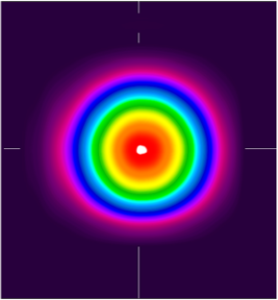
1280 nm Femtosecond Laser
Chromacity’s 1280 nm laser generates femtosecond pulses, with a fiber delivery output, to drive advances in test and measurement applications within the semiconductor industry.
While operating at 1280 nm, Chromacity’s ultrafast laser can also generate 80 fs pulses across the 1250 nm – 1310 nm wavelength range, and combined with excellent beam quality, the Chromacity 1280 has scope to broaden fundamental research and material characterisation capabilities.
The 1280 nm laser inherits Chromacity’s novel laser design architecture and patented manufacturing expertise to develop a high performance, and truly stable light source, which is operationally ready with minimal set-up time.
Discover more about the capabilities of the Chromacity 1280, email: sales@chromacitylasers.com
Applications
- Two-photon laser-assisted device alteration (2p LADA) in silicon integrated-circuits
- Two-photon optical beam induced current (TOBIC)
- Material characterisation
- Fundamental research
- Interrogating photonics integrated circuits
Laser scanning and optoelectronic imaging of integrated circuits is crucial towards optimal semiconductor failure analysis, at a time when the industry faces global chip shortages.
With seamless integration into Laser Assisted Device Alteration (LADA) platforms, Chromacity’s robust 1280 nm laser source can help determine soft defect localization, using near-IR microscopy techniques including (2P-LADA).
Two-Photon Laser Assisted Device Alteration (2P-LADA) is a high-resolution imaging technique which exploits two-photon absorption (TPA) to deliver precise three-dimensional localisation of the photocarriers, injected by the TPA process, to accurately locate and characterise failures, with optimum spatial and temporal performance.
Similarly, the Two-Photon Optical Beam Induced Current (TOBIC) technique is another laser-scanning method for imaging integrated circuits. This technique uses ultrashort-pulse lasers to induce a photocurrent which is subsequently mapped to generate an image. TOBIC imaging occurs around 1250 – 1550 nm where the beam is easily transmitted through the silicon band gap.
Technical Data
Specifications:
Output Wavelength
1280 nm
Peak Power
4.4 kW
Output Power
50 mW typ. (Average Power)
Pulse Duration
<100 fs typ.
Pulse Repetition Frequency
100 – 200 MHz
Pulse Energy
>0.5 nJ
Bandwidth
50 nm FWHM
Electrical
Voltage 110 – 240 V AC, Frequency 50 – 60 Hz, Power 80 W
Control interface
Web browser interface. Ethernet & serial port (RS232) also available.
Cooling
Air cooled
Installation
Remote installation available
Dimensions
Length: Laser Head
614 x 304 x 96 mm
Beam Profile
Beam shape measured at a distance of 500 mm from fiber and collimated using an aspheric lens with focal length 8 mm. Fiber has MFD of 12.6 μm.

